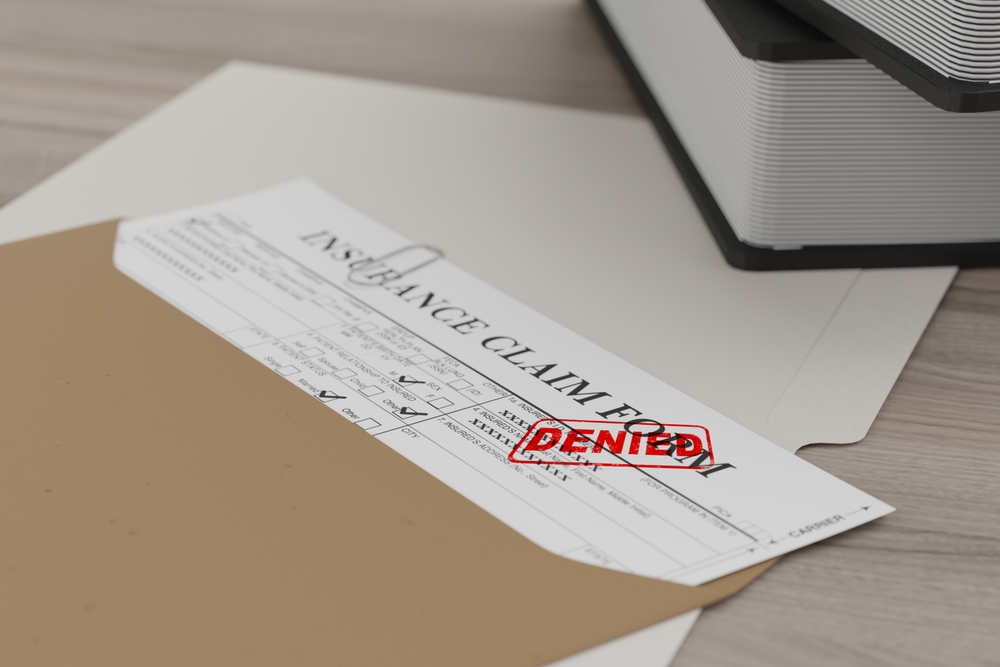Insurance Claims: How to Prevent Denials and Ensure Coverage

Home and car insurance claims can be denied. When you’re aware of the reasons for claim denials, you can help ensure coverage for your home or car.
Here are some common reasons for insurance claim denial and tips to prevent it:
Common reasons for home and car insurance denial:
- Lack of coverage: The policy may not cover the specific event or damage. Review your car and home insurance policy details and coverage limits to ensure your situation is covered.
- Policy exclusions: Certain conditions or events might be explicitly excluded from coverage. Familiarize yourself with exclusions in your car and home insurance policies to avoid any surprises and disappointment.
- Insufficient documentation: Claims often require detailed evidence, such as photos or receipts. Keep thorough records and gather all necessary documentation before filing a claim.
- Late reporting: Failing to report a claim within the required time limit can lead to denial. Report claims as soon as possible and follow the insurer’s timelines.
- Fraud or misrepresentation: Providing false information can result in denial. Always provide accurate and honest information when filing claims.
- Policy lapses: If premiums haven’t been paid, coverage may lapse. Keep track of payment deadlines to maintain continuous coverage.
- Improper claims process: Not following the correct procedure can lead to denial. Understand your insurer's claims process and follow it closely.
Does your home or car insurance claim involve illegal activity?
For example, if you have an accident and are caught driving with a suspended licence, your insurance company can deny your claim or even cancel your policy.
You are growing marijuana illegally at your house and a fire starts related to your operation. You can expect your claim to be denied.
How to avoid claim denial:
- Read your car and insurance policies: Understand what is covered and any exclusions.
- Document everything: Keep records of all communications, receipts, and evidence related to your claim.
- Communicate with your insurer: If in doubt, reach out to your insurer for clarification on coverage and claims procedures.
- File promptly: Submit claims as soon as the event occurs and within the insurer's required time limit.
- Stay Organized: Keep all policy documents, correspondence, and claims submissions in one place for easy reference.
What can I do if my insurance claim gets denied?
If your insurance claim gets denied, here are steps you can take to address the situation:
- Review the denial letter: Carefully read the denial letter to understand the specific reasons for the denial. This will help you determine your next steps.
- Check your policy: Review your insurance policy to confirm whether the claim falls within coverage. Understanding your policy can provide insights into whether the denial was justified.
- Gather documentation: Collect all relevant documents, including the claim, any communication with the insurer, receipts, and photos related to the claim. This evidence will be crucial if you decide to appeal.
- Contact your insurer: Reach out to your insurance company for clarification. Ask specific questions about why your claim was denied and what evidence or information might change the decision.
- File an appeal: If you believe the denial is unjust, follow the insurer's appeal process. Submit a formal appeal letter outlining your case, supported by documentation and any additional evidence.
- Seek assistance: Consider contacting a consumer advocacy group or an insurance ombudsman for guidance. They can provide support and help you navigate the appeals process.
- Consult a lawyer: If the claim involves significant financial loss or if you believe the insurer acted in bad faith, it may be worth consulting an attorney who specializes in insurance claims.
- Explore other options: If all else fails, consider filing a complaint. They can investigate the insurer's practices and may help resolve the issue.
- Stay organized: Keep a detailed record of all communications, including dates, times, and the names of representatives you spoke with, as this information may be helpful in your appeal or complaint process.
By being proactive, honest, and informed, you can significantly reduce the likelihood of having your car or home insurance claim denied.
Do you need to file a claim with Western Financial Group?



